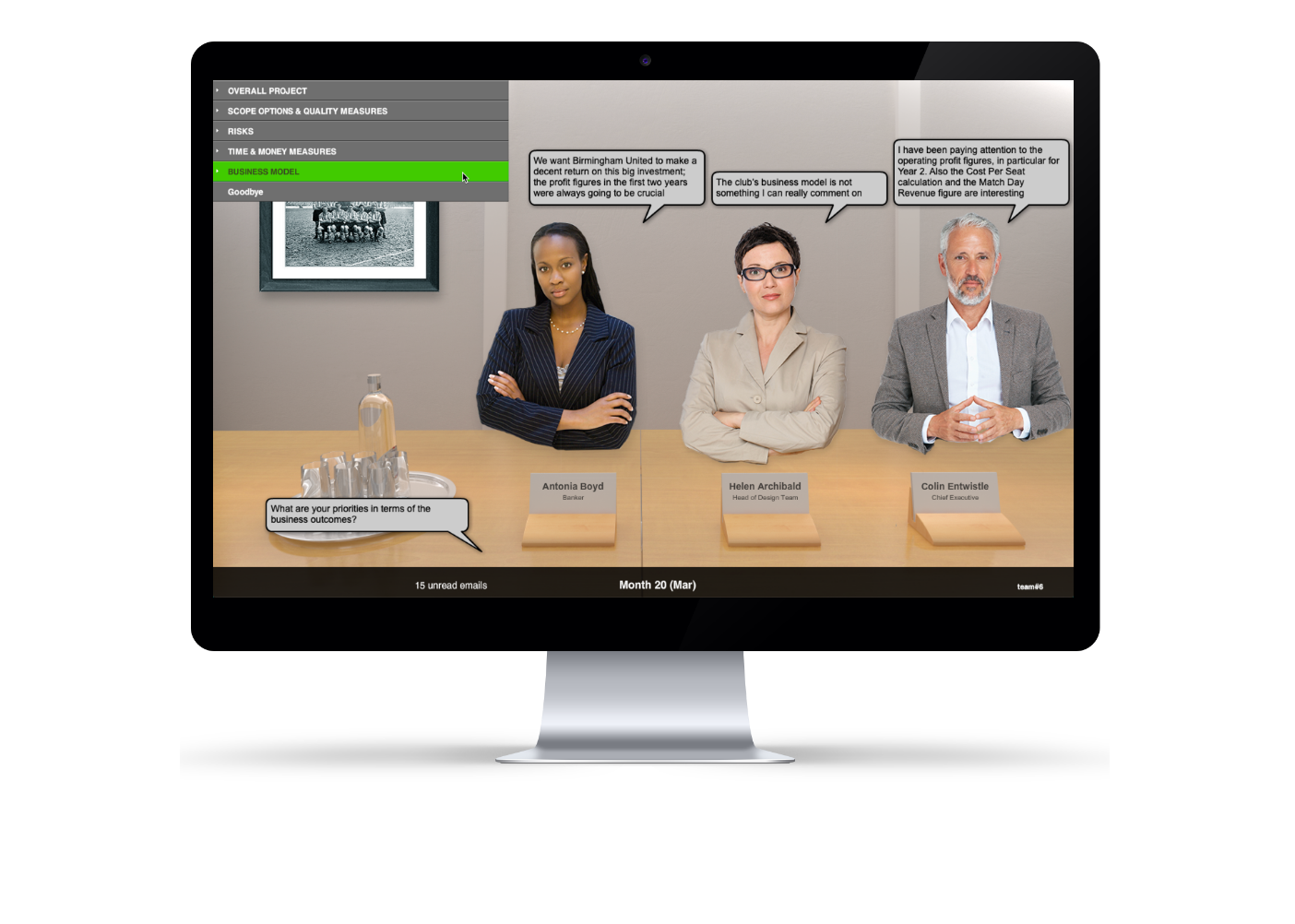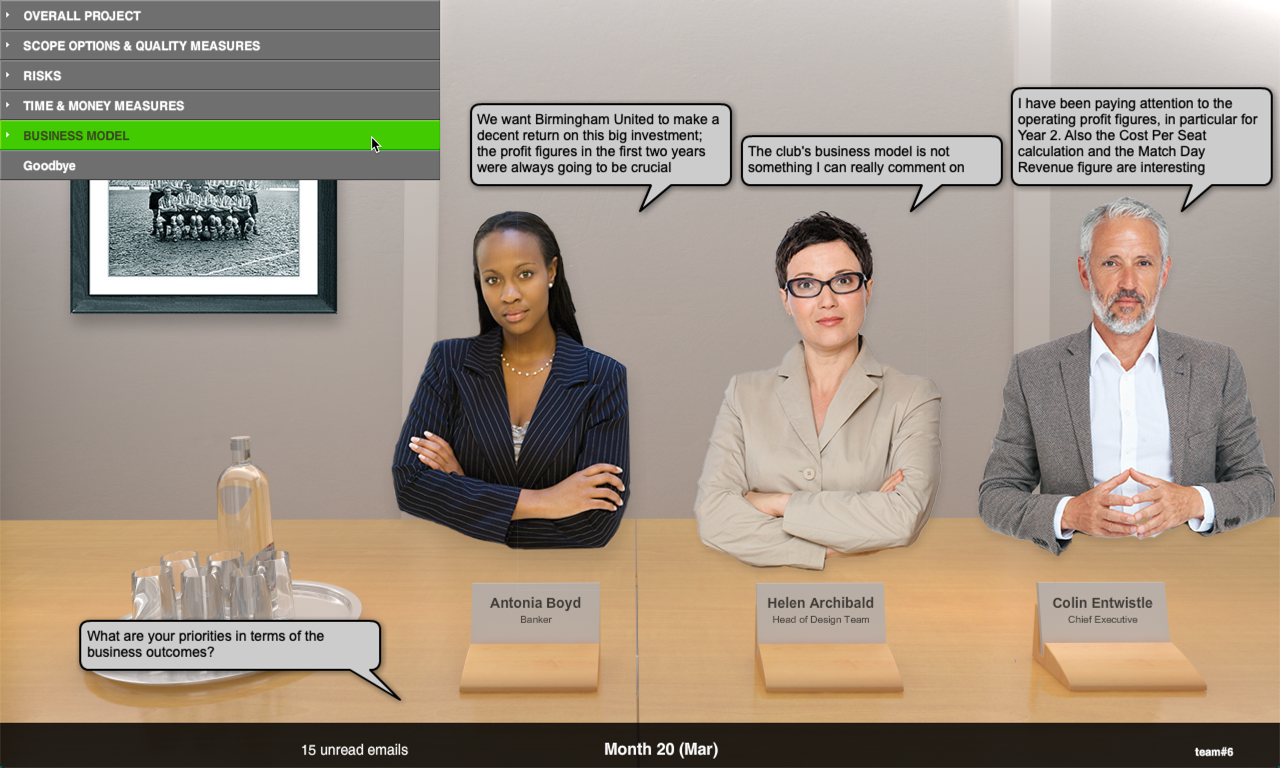The challenge of... leading complex projects
In a world facing rapid change, radical innovations and huge challenges, complex projects are a vital way in (the means by) which the objectives not just of organisations, but of entire nations, are achieved. When the stakes involve lives, livelihoods, public health, climate change, etc., the successful leadership of complex projects has never been more critical.
Organisations often articulate their approach to this challenge as…
- advanced project management
- strategic project management
- complex project management
- major project management
- managing a project

Find a solution for your challenge
Our range of pioneering simulations address the needs of modern leaders, offering engaging and effective learning.
Project management is the application of processes, methods, skills, knowledge and experience to achieve specific project objectives according to the project acceptance criteria within agreed parameters. Project management has final deliverables that are constrained to a finite timescale and budget. A key factor that distinguishes project management from just ‘management’ is that it has this final deliverable and a finite timespan, unlike management which is an ongoing process. Accordingly, project professionals need a wide range of skills; often technical skills, and certainly people management skills and good business awareness. (APM Body of Knowledge)
- Transport infrastructure: HS2, Crossrail, Lyon Turin Railway, California HighSpeed Rail
- Energy: new nuclear power stations, gas pipelines, off and onshore windfarms
- Defence: Submarine, Type 26 Frigate
- Major events: hosting the Olympic Games or Football World Cup
- Software: enterprise software implementations
- Organisational change: mergers & acquisitions
What makes a project “complex” ?
Real world challenges
Prendo’s customers face many challenging situations when leading complex projects:
Advanced simulations can help leaders address these real world challenges
At Prendo, we believe that the complex skills and deep understanding that are needed for leading complex projects are best developed with advanced simulations that provide accelerated experiential learning and the opportunity to explore the underlying cause and effect models.
Talk to us to understand if our simulations can address your specific challengesLearning to lead complex projects
To address the challenge of leading complex projects, leaders need a combination of skills (know-how) and understanding (know-that), in the same way that the driving test combines the practical and the theory:
leaders need to be able to…
- juggle a mix of technical, business and human challenges simultaneously, and take a holistic view
- influence others and balance conflicting stakeholder interests
- define what ‘success’ is: reconcile time-cost-quality vs benefits realisation and meet client expectations; strike a balance between short-term gain and long-term organizational, financial and social goals
- judge the trade-offs when defining and changing the scope, deciding on a contract, making resource choices, managing risks and evaluating business outcomes
- apply intuition, emotional intelligence and empathy
- build relationships and maintain trust
- deal with ambiguity, uncertainty, risk and unknown unknowns
- work with long timescales
leaders need to understand…
The connections between:
- scope choices and task parameters & the business model & stakeholder opinions
- resourcing and contract choices and task parameters
- task outcomes and business model
The principles underlying:
- scope management
- risk analysis and risk management
- change control

